It's Wednesday, and as usual I scout around various issues that I have been thinking…
Economics curriculum is needed to work against selfishness and for altruism
It is Wednesday and so just some snippets. I have written about the behavioural impacts that studying mainstream economics, particularly the microeconomics component can have on students as they progress through their studies. I have observed sort of nice young people entering first-year and by later years, become arrogant, self-opinionated and delusional jerks. This phenomenon is particularly prominent if they go onto to do postgraduate level studies. It is well documented. The way mainstream economics is taught builds on anti-social attitudes that might already be present in students who choose to undertake this sort of training. The curriculum matters a lot. In that context, our next macroeconomics textbook (see below) will, in my view, actively work against any predisposition towards selfishness and against altruism, while still providing students with a first-class, technical education in how the monetary system operates.
There was an interesting 2005 study published in the academic journal Human Relations – Personal value priorities of economists – by a group of researchers mainly from Israeli-based universities.
The authors (Neil Gandal, Sonia Roccas, Lilach Sagiv and Amy Wrzesniewski) noted that:
Policy decisions in the public and private sectors are guided by complex specialized knowledge, often not easily understood by the public. Hence they depend to a large degree on the professionalism of decision-makers. Professional’s decisions, however, are affected not only by the knowledge they hold: they also reflect their underlying beliefs, assumptions and goals. In other words, they reflect personal values.
When I was beginning my economic studies it was rammed down our throats that mainstream economics was ‘value-free’. One of the main textbooks at the time (Lipsey) was entitled ‘Positive Economics’, which was claimed to be objective, and, there was a distinction made between that and so-called normative economics, which apparently was where values were to be found.
It was obvious nonsense but consistent with the mainstream desire to masquerade as an ideologically free space.
Why would want to do that? Answer: because the values that were embedded in mainstream economic theory were pro-capital and anti-government.
The Israeli study notes that:
economists play a central role in forming and implementing policy, both in the public and private sectors. They hold key positions in governmental and other public institutions where they advise policy-makers in diverse areas such as international trade policy, fiscal policy, and regulatory policy … it is thus important to study the factors that implicitly affect the perceptions and attitudes of economists, which are likely, in turn, to influence the policies they adopted endorse.
And, the “training process of economists usually starts in university departments”.
This means that we can gain an understanding of the way in which the curriculum of economics and the “perceptions and attitudes” of the students engaged in the curriculum (note: I don’t use the word knowledge in this context, given that I consider mainstream economics to be largely fake knowledge) interact, which, in turn gives us some insight into why policy decisions are what they are.
This is exactly what the Israeli study did.
1. They were able to compare “the values of economic students to those emphasized by students from other disciplines”.
2. They were able to study the evolution of values of economic students over the course of their studies – by comparing values of economics students in the “first week of study to … students at the end of their first year” and “first year … to … soon to graduate”.
3. They were able to “identify the pattern of values are distinctive to economists while controlling for other variables such as age and socio-economic status”.
4. They could also discern “whether eventual differences in values as a result of self-selection and training processes”.
I won’t go into the techniques they used but there is nothing particularly controversial about them. They were really trying to differentiate between what are known as “self-enhancement” values (power, achievement, and hedonism) from “self-transcendence” values, which “emphasize promotion of the welfare of both close and distant others”.
The study found that:
1. “Economics students placed more value on achievement … hedonism … and power” than students from other social science disciplines.
2. “economics students attributed less importance to universalism values that did students from other disciplines” – that is, “care for society as a whole – for humanity, and for nature.”
3. “Individuals who attributed great importance to universalism care about tolerance, social justice, and equality … economists may make good friends or neighbors, but are relatively less concerned with the welfare of people who are not part of their in-group.”
4. “economists behaved less cooperatively than others”.
Was this due to self-selection?
That is, are “economists just choosing vocational environments … that are congruent with their interests, goals and values”?
Alternatively, were the value differences “the result of training processes”. In this regard, economics “students undergo both formal and informal socialization processes that expose them, through norms, expectations, and explicit communication, to the values emphasised in their department”.
It is now well documented that the way students are trained by economics departments bias is towards developing “self-interest” above other more desirable attributes.
The Israeli study found in this regard:
1. Economics students exhibited less altruism and more self-interest in their “first week of their freshman year”.
2. That is, “differences between students of economics and students from other disciplines were already apparent before students were exposed to training in economics”.
3. After one year of study these differences were maintained and stable.
4. By the final year of study, the emphasis on “achievement, power, hedonism” were sustained and economic students valuation of “benevolence”, which we might think of as being empathy towards others, had declined significantly.
These results suggest that the mainstream economists exhibit what we might consider to be sociopathological tendencies.
I looked up the International Classification of Diseases (ICD) to check out what constitutes sociopathological behaviour. Terms like “Callous unconcern for the feelings of others” and “Gross and persistent attitude of irresponsibility and disregard for social norms, rules, and obligations” are used.
You can also consult the American Psychiatric Association’s Diagnostic and Statistical Manual of Mental Disorders, under the T 04 Antisocial Personality Disorder (Dyssocial Personality Disorder) – “a pervasive pattern of disregard for and violation of the rights of others”.
The elevation of selfishness and greed above benevolence and altruism certainly suggests that economists tend to this state.
In their 1993 article – Does Studying Economics Inhibit Cooperation? – economist Robert Frank and psychologists Thomas Gilovich and Dennis Regan summarised the extant literature and conducted a series of their own experiments to explore whether there are significant differences between “economists and noneconomists” in relation to whether they exhibit sociopathological tendencies.
They conclude that:
1. “that economists are more likely than others to free-ride”.
2. “economics training may inhibit cooperation …”
3. And, interestingly, that “the ultimate victims of noncooperative behavior may be the very people who practice it”.
4. And students in economics classes are more likely to lie when confronted with experiments about generosity – that is, claiming to be more generous than they were.
But at any rate, while economists might lean towards acting like the humans they assume, the rest of us act out our lives in a very different way.
Note I am including myself in ‘us’ even though I have a PhD in Economics and would be called an Economist. I think I was a black sheep. There have to be some.
For more discussion on this topic see my earlier blog post – Humans are intrinsically anti neo-liberal (May 22, 2017).
Which brings me to the point of all this.
As I explain below, our new macroeconomics textbook (the two-year sequence) will be published in February 2019 by Macmillan Palgrave.
A student who progresses through this curriculum will receive a first-class technical understanding of monetary systems and the how they underpin the real economy.
There has been no compromise in our pedagogy on those matters.
But, most importantly, students who use our book will be disabused of the notion that self-interest is the best strategy. The book exudes an implicit empathy – an appreciation of history, of class struggle, of collective values.
We are open about the value system we share (Bill, Randy and Martin).
We don’t hide behind the faux objectivity that mainstream economists use to disguise their ideological preference for capital, deregulation and small government.
We maintain that a full employment framework remains relevant in the current period and will do so into the future. Thus we reject the modern notion that the old full employment world is gone forever and workers have to get used to casualised work, periods of idleness, and precarious lives.
That is clearly a notion that works in favour of capital that wants as much flexibility as possible and wants to shift the risk of enterprise onto the workers.
The stupid Left has also bought that line and have become obsessed with ‘solutions’ such as UBI. This surrender to neoliberalism is why the social democratic parties are struggling around the world and why maniacs like Donald Trump have power.
So we think that the curriculum offered by out textbook will develop economics graduates who will be confronted with a societal world view to attenuate any pre-existing tendency towards selfishness.
One hopes.
Our forthcoming MMT Macroeconomics Textbook
The final publication of our new Macroeconomics textbook (Mitchell, Wray and Watts) by Macmillan Palgrave will be February 2019.
We are presently working with Macmillan’s editors on the final version to clear up outstanding issues. It has been a mammoth task, much harder than writing a stand-alone monograph. But we are in the final stages now and the outcome will be a two-year (University-level) sequence in Macroeconomics that is built from foundations up by the developments we have made in Modern Monetary Theory.
It doesn’t just mention MMT. The pedagogy is core MMT – the first time a 2-year sequence of this type will become available.
It builds on our – Modern Monetary Theory and Practice: An Introductory Text – which we published in March 2016. It offered a first-year level sequence in Macroeocomics from an MMT perspective.
The new book adds more than 18 Chapters to the introductory book and increases the sophistication of the treatment of many issues.
It is accessible to beginners but provides a learning path so that students can advance to a very sophisticated level of understanding.
Here is the current version of the front cover.
And to whet your appetite, here are some of the other layouts – Section Opening Pages. Note, that given the multinational status of the authors we wanted to have a global emphasis on the pedagogy (so the terminology is not US-centric for example – we talk about the central bank rather than the ‘Fed’ or the RBA) and the design team came up with this map idea.
We liked it but then couldn’t agree on which countries should be displayed, given we couldn’t fit a whole Mercator’s projection on the front cover. I certainly didn’t want the US and America’s to be the focal point given the sort of nonsense that gets spewed out that MMT is only applicable to the US because of its reserve currency status.
The compromise was that in each of the Section Pages (Part A to Part H) a different map perspective is displayed. So everybody is happy.
Here are some more snapshots from the layout – it is a lovely deep blue, which was one of my requirements 🙂
For those who claim MMT has no formal analytics (no mathematics) underpinning the ideas, some of the chapters in this Part of the book might surprise:
And unlike the mainstream approach, MMT puts government, as the currency-issuer (or not) at the centre of the analysis in a modern monetary economy and introduces the essential concepts of currency, money and the banking sector very early on in the analysis:
For those who think there is no theory in MMT, then they will discover a deep theoretical vein runs through the core of our work.
For example, this chapter is among several that offer theoretical discussion that integrates with the policy and descriptive material developed throughout the book:
And this Chapter is about growth and dynamics (Theory, analytics, maths, etc):
And as well as theory, this should disabuse those who claim that MMT proponents present no theory of inflation (an oft-rehearsed lie from our critics).
For those who claim MMT is just about America and its reserve currency status, we disagree. This chapter is about open economies in general:
And in that vein, this is what the Chapter headings will look like.
For mainstream students who are denied a knowledge of alternative schools of thought and an appreciation of the evolution of macroeconomic ideas, this chapter will be of use:
And to show how ‘Modern’ MMT is, this chapter brings the theory and concepts into the contemporary setting to give students alternatives to the TINA world of neoliberalism.
What I have been listening to today …
This is the Icelandic composer – Jóhann Jóhannsson and the piece – Flight from the City – is the first track on his wonderful 2016 album – Orphée.
It was his last solo album.
He died earlier this year (February 9, 2018) at the age of 48 as a result of an “accidental overdose of cocaine”. Talent and good sense sometimes do not coincide.
Here is a story about him from Rolling Stone magazine (February 10, 2018) – Johann Johannsson, Oscar-Nominated ‘Sicario’ Composer, Dead at 48.
His compositions are worth listening to. I travel with him in my ear a lot.
That is enough for today!
(c) Copyright 2018 William Mitchell. All Rights Reserved.
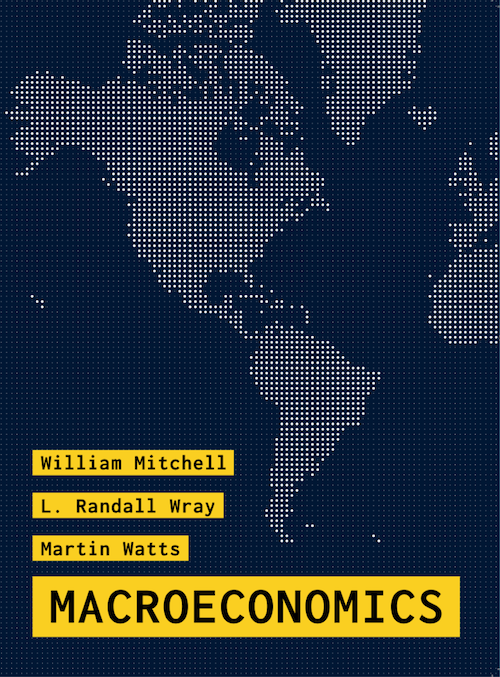
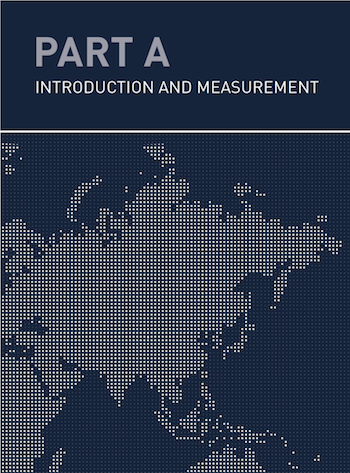
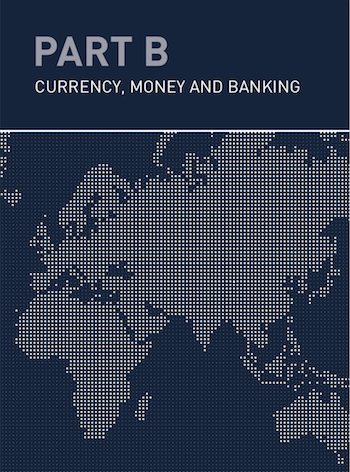
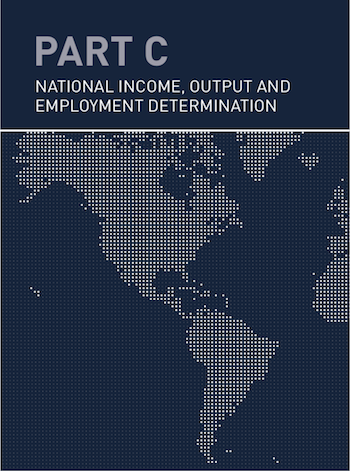
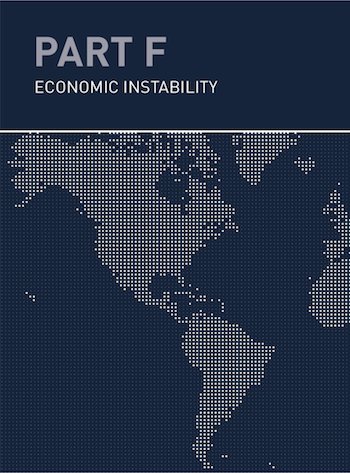
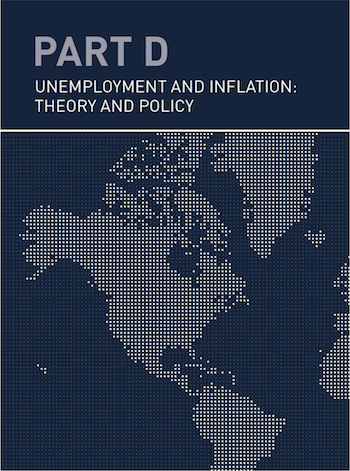
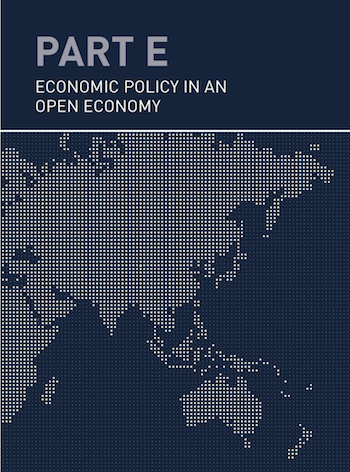
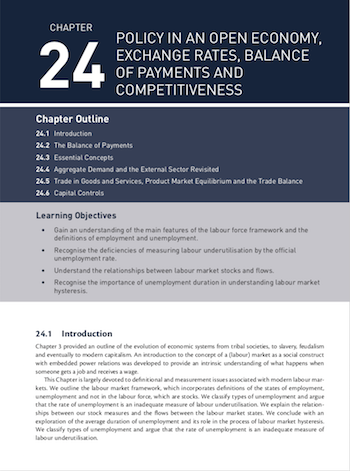
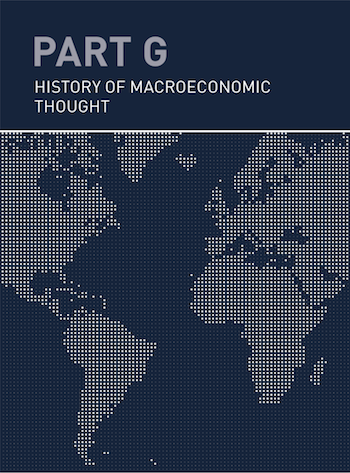
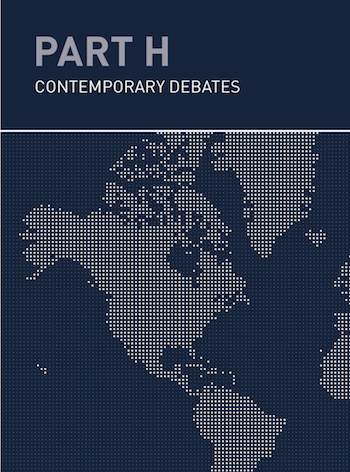
Dear Bill,
I hope the screenshots do not correspond to a printed copy of the book, because there is an error in the text. The line beginning “We classify types of unemployment” appears twice in the paragraph.
“I have observed sort of nice young people entering first-year and by later years, become arrogant, self-opinionated and delusional jerks”.
This is the case I would argue for many degree courses from Australian Universities where a sense of superiority and hubris seems to be increasing with time. Not sure what is changing but it is not just economics there is a real arrogance from many recent graduates would be my experience, know it all not willing to challenge their own preconceived ideas of how the world works and yes they do seem to know everything the universe has to offer!
Ah, I’ve just noticed that the learning objectives are unrelated to the chapter outline, so I guess we are just seeing a mock-up of the format.
One of the essential elements in human development has been instinctive competition.
You see this in early tribal conflicts to win and enforce power. Its most recognizable format has been apparent in the era of imperialism.
Part of that competitive process resulted in the acquisition of assets by minorities; epitomized in the lifestyles of an elite class.
The horrendous wars of the 20th century emphasized the need for greater implementation of the already emerging democratic form of humanity, with its bias towards greater equality.
The Capitalistic regimes that began with the industrial revolution have had to adapt to the demands of ideologies based on greater social priorities.
But the competing ideologies of modern humanity have still to contend with varying support, with many of the Capitalistic class preferring the (supposedly abstract) discipline of the economic market to the directed resources of the political class.
Whatever the ultimate outcome of this conflict (influenced by propaganda from all sides) it will largely be reflected in that basic human instinct to compete – something that one day might be referred within, as Bill mentions; International Classified Diseases. Or just plain differences of opinion.
Dear dnm (at 2018/09/19 at 8:00 pm)
Yes, these pictures are just mock-ups as the design process continues. This is more or less what it will look like now and the details will be finalised as the copy-editing stage (which were are finalising at present) concludes.
best wishes
bill
I hope the book lays flat when opened.
You should consider offering a free PDF version of your book(s). The commercial imperative for textbook authors and their publishers is obvious, but for activists waging a propaganda war there’s really no strategy better than equipping potential recruits with the information they need up front. Students in an economics class might be compelled to buy the book, but everyone else is taking a risk of owning an expensive lump of paper.
On the subject of altruism etc., I’m very self-interested with a strong compulsion to favour my in-group and to exclude others, *and* I believe that is the reason why I am attracted to your economic framework. It is obvious that political ideas do not scale well – things that work at the federal level are useless at the local level, and vice versa. MMT and the Job Guarantee are a good fit for macro stuff at a federal level, and an altruistic universalism that operates at *only* that level is attractive. But the details of how that translates to smaller groups of people, state and local and even smaller, is up for grabs. There’s no reason why MMT, the JG and, say, “libertarian localism”, or any other framework that lets people manage their own lives should be incompatible.
“I have observed sort of nice young people entering first-year and by later years, become arrogant, self-opinionated and delusional jerks.”
Never a truer word spoken. I think that might have been me by the time I finished Honours. Post grad CGE modelling beat it out of me pretty quickly though. It forces you to face every assumption and every mechanism. While those models are poor for overall macro growth because they don’t do the financial sector at all well, they are outstanding at estimating industry impacts from most shocks.
Can’t wait for the release of your textbook. I remember Lipsey was one of my first year texts…thoroughly un-enjoyable.
All this is fine but as Matt Bruenig has pointed out, MMT doesn’t want to raise taxes.
Can you all MMT folks come and say that you will raise taxes?
Dear Arin (at 2018/09/19 at 9:02 pm)
And Matt Bruenig knows does he? He has never asked me that question.
Please stop making stuff up and making demands that are plain nonsense and a denial of the literature that you probably haven’t read.
MMT as developed by the core team considers tax changes in a functional way. There are times taxes will have to rise and other times they might fall.
Bruenig is plain wrong. And you don’t do yourself any favours by just mimicking his nonsense.
best wishes
bill
Can’t wait for the new text. I’ve got my train tickets for the New York City conference. That it is in NYC at all, is an important ‘tell’ about how MMT has broken through the mainstream propaganda.
work against any predisposition towards selfishness and against altruism
Why against altruism? I like altruism. 🙂
Reflecting on self interest vs cooperative nature, I find it difficult to think of real world examples of self interest leading to the most favorable results in most major endeavors. Imagine the sports team filled with players who exhibit the attributes this study finds the mainstream economics curriculum encourages and develops, or a pack of wolves, an army…..?
I hate to say it here but if Progressives and others were more in favor of justice there’d be far less need for altruism.
I’m referring, of course, to government privileges for private credit creation such as government-provided deposit insurance, a lender/asset buyer of last resort, and exclusive access to accounts at the Central Bank for the banks and other depository institutions and not for individual citizens.
And who do these privileges favor? Who else but the banks themselves and the rich, the most so-called worthy of what is then, in essence, the public’s credit but for private gain?
We can do better but ethical principles such as all citizens have an inherent right to use their Nation’s fiat in ALL its forms and thus not be reliant on bank deposits, mere liabilities for fiat, should be our guide and not amoral pragmatism.
Dear Bill,
I hope you will pardon my interference… on the subject of interference!
If it’s not too late, can I urge you to re-consider the use of the dot-screen fill to shade the land mass areas of the world maps?
I’m already getting all kinds of moiré interference patterns when zooming in and out of this page on my phone, and the potential for similar interference patterns when the cover is reproduced in any printed publications, or small lcd screens, is considerable.
I’d recommend using a solid fill, or at least, a larger dot screen, to try and avoid or lessen the potential for moiré interference.
I’m an architectural visualiser not a graphic designer, so it’s not my exact specialisation, but maybe just get some specialist advice on the matter before going to final print?
Best, Mr S.
If money provides a shield for sociopaths to hid behind a rational society would look into what it could do to prevent this including educational courses that exacerbate the problem.
Many of my family members have MBA’s. I always felt the GMAT required that your heartstrings be cut before writing.
Looks interesting, Bill. Thanks for the early look.
Very interesting comment. At the risk of “essentializing” women, I do suspect that the lack of women economists and graduates is in part because they are put off – not by the maths, scientific methodolgy or the abstract thought involved in economics – but by the individualistic libertarian tendencies of the “rational men” that seem to preside over (I know it’s not ALL men) most economics departments. There is a prevailing aura of ‘nastiness’ and cynicism about humanity in these departments that almost completely overlooks the altruism half the world’s population demonstrates in its daily unpaid caring work. Yes we all have our Darwinian “inner Nazi” as Varoufakis memorably pointed out once in one of his many interviews – but what makes us human is our ability to tame and transcend that. I know it’s an oversimplification but to me Neoliberal economics has always claimed the way to nirvana is to give our worst tendencies free reign in a Wild West market free for all – nature “red in tooth and claw” if you like. Whereas surely the most sensible way forward to is to restrain and temper our worst instincts – to develop systems that are human and civilised and work against our partly selfish genes? Anyway, clearly underpinning economic thought is a basic concept of what it is to be human – and the mainstream view is both depressing and I would argue unfounded if you consider most women’s lives. Probably not saying anything new… but as underemployed precariat labour I have time on my hands….
PS: I will definitely be BUYING the new MMT textbook in February. Luckily I never parted with cash toread Mankiw’s Principles of Macroeconomics. The latter tome I got from a wonderful institution demonstrative of the altruism of humanity called the public library (which will hopefully soon be re-shelving the book in the Fiction section).
Just loaded the 2016 text to my kindle. Looking forward to the 2019 text, Bill.
I wonder what the Israeli researchers would say about engineers in such a study?
Thanks Bill, Randy and Martin, well done. This book appears to be an excellent innovative new approach to teaching Macroeconomics. Students young and old will benefit greatly from this new Macroeconomics textbook. I can’t wait to get my hands on a copy!
I don’t like this work culture that forces you to see things through its lens.
I don’t care about cars, having a house, having the latest phone, having a high score at some standardized test, having a trophy spouse, being a CEO, start a company (selling what?), or having children.
I think a lot of this sociopathy is inevitable because so much focus is put on having stuff. People make excuses in their minds to justify the harm that they fundamentally know that they are doing.
If the economy weren’t this bad, I’d probably be able to afford these things if I choose to. The dark cloud that always hang over me is climate change. The essential point is: Having more material –> pollution inevitably. I’d probably end up not getting those things anyway.
Am I supposed to learn a lot of science and then rip people off selling monopoly-priced drug, so I can buy a car to pollute the Earth? What a stupid proposition. Besides, aren’t people supposed to practice being less materialistic?
I don’t think I’m lazy. I work hard when I need to. I am just uninspired and feeling inadequate most of the time. I am not competitive when I know that I am denying another person an opportunity, so I just let my fate flow to me naturally. I admit I have been lucky with how I am turning up when compared to other people.
This could be my personal quark, but I don’t feel like forcing myself to do anything or on anyone. I would do that for a job guarantee program though because that helps everyone.
MMT has never once come into conflict with my personality or force me compromise my values.
I’m confused as to what is being released when. Bill makes several references in the blog to a Feb 2019 release date for the book, but amazon says it will be available in two days, 4 Oct 2018. Is this a pre-release that will be different from the final manuscript?
I also see that amazon lists the only available edition as paperback. Will a kindle version be available later, as it was for the intro book? And will it be a REAL kindle version that is readable on standard kindle devices, unlike the “Print Replica” version of the intro book?
Dear Chuck Stephanski (at 2018/10/03 at 8:20 am)
To clear up any confusion – the book will be published in February 2019 by Macmillan Palgrave. Amazon is wrong and I am unsure how they came up with that date.
Macmillan indicates there will be a dedicated eBook version.
The paperback version will sell in the US for $US75.
best wishes
bill